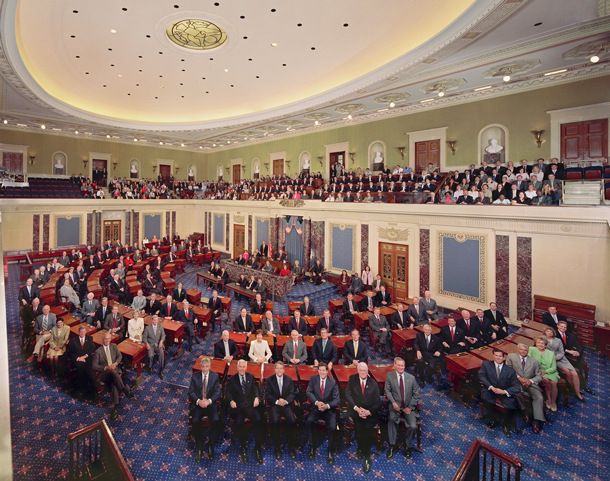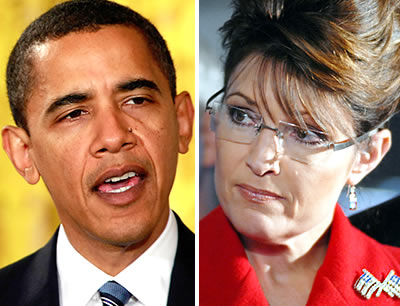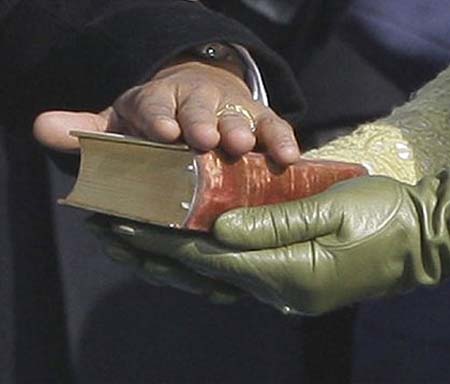
Mario Cuomo once said, “You campaign in poetry. You govern in prose.” To this maxim, we might add, “You campaign with fists. You govern with palms.” Lawrence O’Donnell, a former staff director of the Senate Commerce Committee and West Wing producer, explains:
“The politics of campaigning are so simple: I’m going to beat you and leave you dead in a snowbank in New Hampshire and never look back. But in the Senate you can be trying to prevail over another senator on Tuesday afternoon whose vote you know you’re going to need on Wednesday afternoon for something else. The ordinary work of the Senate never involves fighting.
“Virtually all the people who run for Senate seats lie and say they’re going to fight, but what they’re actually going to do—which they may not know when they go to Washington for the first time—is beg. And beg people like me, whom they’ve never heard of, the staff director of this or that committee, before they ever get to meet the chairman.
“So the personal qualities necessary for Senate work are politeness and charm and graciousness and generosity, which New York tabloids have no comprehension of. Why should they? The press is never allowed in the rooms where governance actually takes place.

Many people enjoy pointing out how “inexperienced” Barack Obama and Sarah Palin are. I, myself, hung out in this crowd, and recently argued this point to my friend Jon Henke. Jon responded:
I don’t see how you can say one of those two is experienced and the other inexperienced. You’ve got to think they’re both sufficiently experienced, or neither are, to be intellectually honest about the thing.
Well, at the risk of being intellectually dishonest, consider the following. As a senator, Obama has legislative experience at the national level, of which Palin has none. As a mayor and governor, Palin has executive experience, of which Obama has none. (I’m unconvinced that running a senate office or a presidential campaign qualifies as executive experience.)
The more important question, however, is whether any of this matters?
We like to think that a president should have extensive experience. We scoff at the suggestion that the leader of the free world will need to “learn on the job.” Yet in order to address this all-too-common refrain, we need to step back and question its premise. As Jon puts it, “When has experience been a good predictor of presidential performance?”
In fact, it hasn’t. During the last presidential election, journalist Lawrence Kaplan pointed out the overlooked obvious:
[I]s it really necessary to point out that Abraham Lincoln and Franklin Roosevelt never saw combat before going on to become America’s greatest wartime strategists? Or that the very men who dispatched Kerry to Vietnam were themselves decorated veterans? To be sure, politicians who have served in war have an essential understanding of the horrors of war. But what does it tell us about their strategic wisdom or their fitness to be commander-in-chief? In truth, very little.
Similarly, what about those who become politicians without any background in politics? Names like Michael Bloomberg, Jon Corzine and Arnold Schwarzenegger come to mind. And what about those without any executive experience? The only political qualification held by the current chairman of the Senate Committee on Foreign Relations, before arriving in the Senate, was a two-year stint on his county council. His name is Joe Biden. Indeed, the last three presidents to be re-elected—Reagan, Clinton and Bush—all previously were governors without a national, legislative portfolio.
In a nutshell, experience is overrated.
Addendum (11/5/2009): Talk-radio host, Michael Medved, adds a moral (as opposed to practical) dimension to my argument: Judge the person, not the resume. In Medved’s words,
One of the most fundamental American values [is] the notion that each individual deserves to be judged on ability, not background, and evaluated on performance rather than credentials … [We are] a nation that proudly offers fresh starts and open doors.

A version of this blog post appeared on Redstate on December 1, 2007.
Those running for president are asking us them to trust them with the launch codes to the world’s most powerful and largest stockpile of nuclear weapons. Surely, then, it’s perfectly appropriate to question their judgment.
The most controversial of these judgments concerns—ironically—the candidates’ most cherished beliefs, which is to say their religious convictions.
Let’s get the caveats out of the way: The candidates are running to be our president, not our priest, so whether they say grace or how often they attend church is inconsequential.
Yet since each one has professed to be a person of deeply felt faith, they have all thereby invited us to probe what that means.
Not because, as Christopher Hitchens would have it, religion is evil—from far it—but because anything—be it religion, a book or even a wife—which a candidates claims significantly informs his thinking, warrants scrutiny.
Addendum (12/7/2007): John Dickerson points out another paradox:
[Mitt Romney] claim[s] that for voters to ask questions about his faith runs afoul of the founders’ prohibition against religious tests for office. But the legal prohibition refers to government barring people from becoming a candidate or holding office. It does not bar voters from considering religion as they make their choices.
Also, the WSJ observes that evangelical bigotry toward Mormons is grossly misplaced:
Mormons seem the very embodiment of “family values,” and you couldn’t invent a religious culture that lived more consistently with Biblical messages. Broadly speaking, most Mormons have, and come from, big families; they’re regular churchgoers and give to charity; they don’t drink, smoke, gamble or engage in premarital sex. On the scale of American problems, the Mormons don’t even register.




Scholars “use an intellectual scalpel…